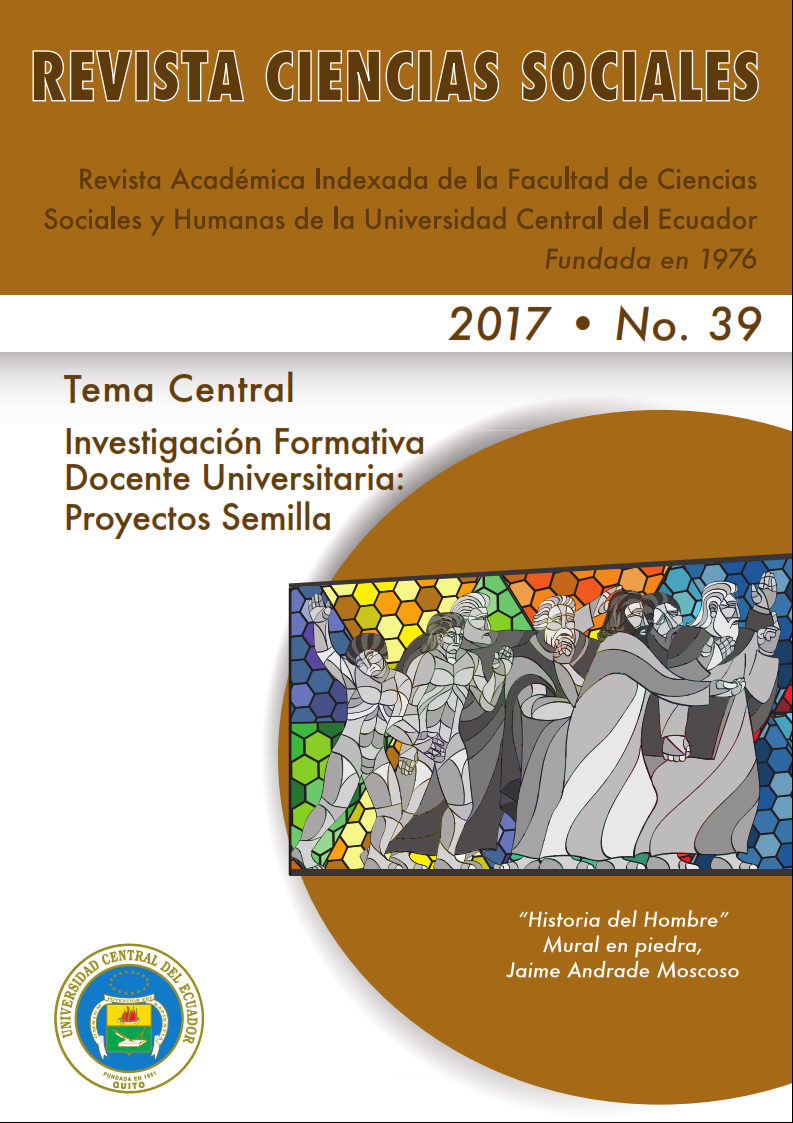The educational conception in the training of female nurses and male nurses reproduces the hegemonic educational scheme of the formation of human resources in health
Keywords:
Higher education, Educative process, Teaching, learning, Qualitative researchAbstract
The objetive of the presente study was to establish the more frequent practices of the educative process in the nursing career of the Universidad Central del Ecuador, in the period from July to December 2015. A descriptive study was carried out with the participation of 156 students, chosen on a non-random basis, belonging to all the semesters of the nursing career, to whom a questionnaire was applied. With the same students, focus groups were organized, divided by semester, and the topics of the survey questions were discussed. The most noteworthy results of the survey were: 85% accepted that the class reflects on the diversity of the Ecuadorian reality in terms of ethnicity, gender and generations. The 90% agreed that the theoretical contents are approached reflexively. In 80% of classes the monologue dominates. In the educational process the teacher imposes and generates dependency in 85%. These results opposed opinions of group meetings. The reproduction of knowledge in a unidirectional way remains the norm of teaching in the nursing career
Downloads
References
___________ (2005a). Pedagogía de la autonomía. Saberes necesarios para la práctica educativa. Siglo XXI editores Argentina.
___________ (2005b). Pedagogía de la esperanza. Un reencuentro con la Pedagogía del Oprimido. Siglo XXl. Argentina.
Honorable Consejo Universitario – Universidad Central del Ecuador (HCU – UCE) (2013). Modelo educativo de la Universidad Central del Ecuador. Secretaría general. Aprobado por el H. Consejo Universitario el 16 de julio de 2013.
Internacional de Servicios Públicos (ISP) (2002). Proyecto de Organización y Formación de Mujeres Andinas. Metodología. I.S.P. Octubre.
Paredes, E. (2006), La educación autoritaria y la educación liberadora en la “Pedagogía del Oprimido” de Paulo Freire. UASB. Ponencia para la Cátedra Andina de Educación en Valores. Quito. Junio, 2006.
Ponce, A. (1938). Educación y lucha de clases. http://es.slideshare.net/lasideassonrevolucion/19292591-anibalponceeducacionyluchadeclaseslibrocompleto.
Downloads
Published
How to Cite
Issue
Section
License
Política de acceso abierto
La revista Ciencias Sociales adhiere al modelo Acceso Abierto en el que los contenidos de las publicaciones científicas se encuentran disponibles a texto completo libre y gratuito en Internet, sin embargos temporales, y cuyos costos de producción editorial no son transferidos a los/las autores/as.
En ese sentido, no existe costo alguno para los/as autores/as en el envío o durante el proceso editorial, defendiendo el derecho a la información con equidad e iguales oportunidades de acceso.
Licencia y derechos de autor/a
Los autores conservan todos los derechos de publicación del artículo y conceden a la Revista Ciencias Sociales una licencia no exclusiva, intrasferible y sin regalías por duración ilimitada para su reproducción, distribución y comunicación pública a nivel mundial bajo una Licencia Creative Commons Atribución 4.0 Internacional (CC BY NC 4.0)


